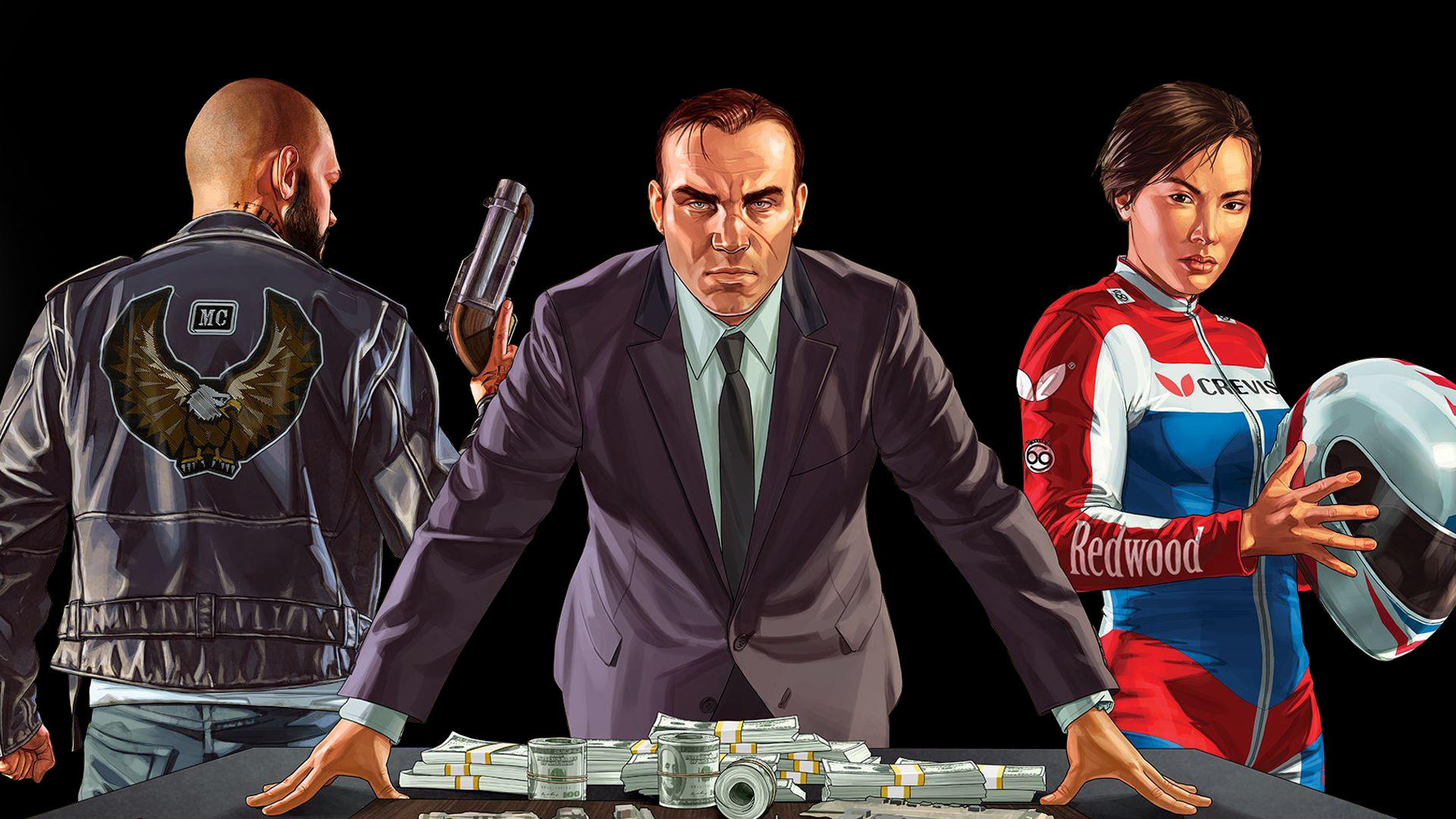Rockstar sets new rules for GTA Online roleplay servers after shutting down rapper's NFT grift
A lil dunk on Lil Durk.

Rockstar has issued a clarification of its policies around Grand Theft Auto Online roleplay servers, a move that has caused some consternation among the huge community that play GTA Online this way, but seems sparked by an isolated server set up to promote a rapper. Yep: take a bow Lil Durk, if that is your real name.
GTA Online's new policy on roleplay servers was posted November 18 and is, as you would expect, rather lawyerly. It begins by saying Rockstar believes in "reasonable fan creativity" and that it hopes roleplay servers will continue to "thrive in a safe and friendly way" for years to come.
It says that the stuff it wants to target and remove from any association with GTA Online is:
- misuse of Rockstar Games trademarks or game intellectual property (IP)
- importation or misuse of other IP in the project, including other Rockstar IP, real-world brands, characters, trademarks or music
- commercial exploitation, including the sale of “loot boxes” for real-world currency or its in-game equivalent, the sale of virtual currencies, generating revenue via corporate sponsorships or in-game integrations, or the use of cryptocurrencies or crypto assets (e.g. “NFTs”)
- making new games, stories, missions, or maps
- interfering with our official multiplayer or online services, including Grand Theft Auto Online and Red Dead Online.
Most of those are pretty self-evident, but number three is almost certainly what's sparked this clarification. In October a press release announced that "Lil Durk fuses music and gaming together with latest GTA based NFT drop". It said the rapper would release a "Trenches Pass" giving fans access to a "pre-sale", which was an NFT offering exclusive access to a GTA Online roleplay server. Apparently there was also some sort of loot box element to this pass.
This is becoming something of a problem for any game where players can establish their own servers, with Minecraft in particular fighting against several attempts to associate the game with blockchain and NFTs. It's easy to see that people would be confused as to whether a GTA server incorporating NFTs was official or not, and Rockstar clearly doesn't want people selling stuff off the back of its baby.
Rockstar has reportedly forced Lil Durk to shutdown his GTA Role Play server “Trenches”‼️😳 pic.twitter.com/eMlJCGVjUiNovember 20, 2022
A notice posted to social media has announced the Trenches server went down yesterday after Take Two's friendly lawyers got in touch. "It has been brought to our attention we've been notified [sic] from the legal counsel of Take Two Interactive Software Inc., the parent company of Rockstar Games Inc. We've been asked to cease all operations of Trenches [...] We have no choice but to comply with their demands."
So long Lil Durk, we hardly knew thee. The statement does say they'll try and work something out with Rockstar and Take Two, but good luck with that.
The biggest gaming news, reviews and hardware deals
Keep up to date with the most important stories and the best deals, as picked by the PC Gamer team.
As for the wider GTA roleplay community, Rockstar's clarification of policy seems like nothing to worry about. The roleplay side of this game is arguably part of why it has such a long tail, remaining a huge draw on Twitch, and it would be counter-productive to go after something that's arguably been part of the series ever since they began hitting PC. This is about going after those who try to sell stuff off the back of GTA Online's success, essentially, or looking to imply an association that isn't there. Because this isn't chump change: GTA Online makes half a billion dollars a year, even if it's still a hot mess.

Rich is a games journalist with 15 years' experience, beginning his career on Edge magazine before working for a wide range of outlets, including Ars Technica, Eurogamer, GamesRadar+, Gamespot, the Guardian, IGN, the New Statesman, Polygon, and Vice. He was the editor of Kotaku UK, the UK arm of Kotaku, for three years before joining PC Gamer. He is the author of a Brief History of Video Games, a full history of the medium, which the Midwest Book Review described as "[a] must-read for serious minded game historians and curious video game connoisseurs alike."

